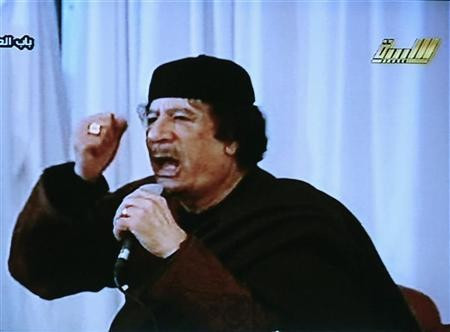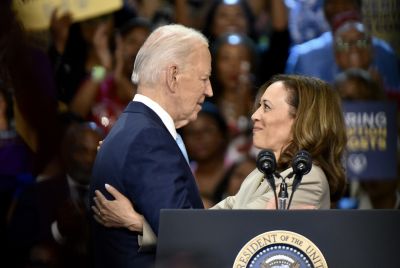Diplomats Expulsion: Gaddafi to Sue the UK?

The Gaddafi regime was quick to condemn the UK for recognising the rebel National Transitional Council (NTC) as the "sole governmental authority" in Libya and Deputy foreign minister Khaled Kaim has hit back by saying the decision was "unprecedented in diplomatic history" and that he considered it "a stain on the forehead of Britain".
"It's illegal, it's irresponsible and for us it was a surprise to happen from the British Government because, I mean, if other countries will (follow) Britain, then the international diplomacy will be chaos." Mr Kaim told reporters
"Of course it both violates national British laws and international law. Specifically the Vienna convention on diplomatic relations of 1961," he said.
Proving Gaddafi is fuming, the deputy foreign minister went as far as saying that Libya would try to reverse the decision by taking legal action in both British courts and the International Court of Justice.
Mr Kaim's comments came after Foreign Secretary William Hague announced Britain was recognising the NTC as the "sole" representative of the Libyan people, following in the footstape of France and the U.S.
Mr Hague announced on Wednesday that the remaining diplomats in Britain would be expelled and the Libyan embassy in Knightsbridge, west London, handed over to the rebel council.
Hague said the move would enable the UK to increase its financial support for the rebels, and the government is now expected to unfreeze assets now belonging to the NTC-controlled Arabian Gulf Oil Company worth up to £91 million.
The cash-strapped rebels last months toured Europe to ask for stronger financial and material support in order to try and break the conflict stalemate, and the Cameron government's latest move is set to come as excellent news for them.
The decision to recognise the NTC follows an agreement reached during the the international contact group on Libya, which met in Istanbul on July 15.
States representative attending the meeting agreed to formally recognise the NTC as the legitimate governing authority in the country.
"This decision reflects the National Transitional Council's increasing legitimacy, competence and success in reaching out to Libyans across the country," Mr Hague told a Foreign Office news conference yesterday.
"Through its actions, the National Transitional Council has shown its commitment to a more open and democratic Libya, something that it is working to achieve in an inclusive political process.
"I'm making this announcement to reflect the facts on the ground and to increase support for those fighting and working for a better future in Libya."
Hitting at the rebels' critics and defending the British position, Mr Hague painted an image of the TNC as a group that was fighting for its people in opposition to Gaddafi whose attacks on his own people had "stripped him of all legitimacy".
While Gaddafi's harsh and authoritarian style and criminal acts have rightly widely been reported and exposed, the rebels should also not be able to get away with some of the actions they have committed.
Both Amnesty International and Human Right Watch have accused them of committing serious human rights violations, which should once the conflict is over be seriously investigated and brought to the Libyan justice.
Prior to announcing the removal of Gaddafi regime diplomats from the capital, the UK had already established a diplomatic mission in the NTC stronghold of Benghazi, after it decided to suspend all of its embassies activities in Tripoli.
The government and the TNC relationship will operate "on the same basis as other governments around the world," Mr Hague said, aslo adding that the announcement had been delayed to prevent Libyan students studying in Britain from losing out on the financial support which they had been receiving through the embassy.
NTC spokesman Guma al-Gamati welcomed the move, saying that it was a matter of "when, not if" Gaddafi was forced out of power in Tripoli.
"It's a very significant step, it's a very important step," he told BBC Radio 4's World At One.
"It's significant because, as Secretary Hague said, normally the UK only recognises states but now it has recognised the NTC as the legitimate government of Libya."
The NTC says it is confident the rebels will soon be able to reach Tripoli and with a new influx of cash, they are set to become even more confident. Analysts however are still divided over what could happen in the next few weeks. The Gaddafi regime in contrast is still short of cash and fuel, which inevitably hampers his troops' progress.
The leader however has lasted far longer than anyone would have predicted five months ago and is still set to fight until the end, it appears. Whether Libya really goes through with taking the UK to the court however remains to be seen as a judicial procedure is set to continue long after the end of the conflict and has very few changes of getting there in the first place.
© Copyright IBTimes 2025. All rights reserved.





















